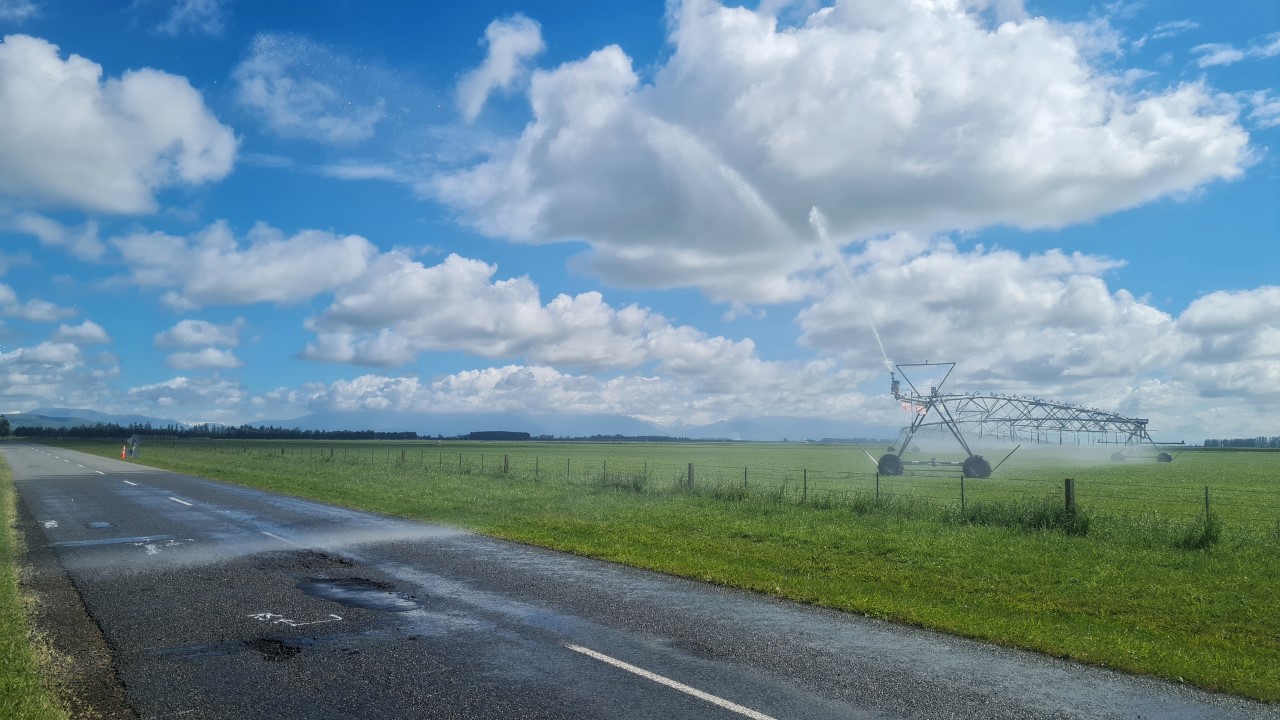Transportation Bylaws
Bylaws are rules or regulations made by Council to make the district a safe and healthy place to live. Bylaws cover health, safety and environmental issues as well as use of our waterways and public spaces.
Bylaws are broadly made to cover one or more of the following purposes:
- Protecting the public from nuisance
- Protecting, promoting, and maintaining public health and safety
- Minimising the potential for offensive behaviour in public places
Not complying with a bylaw can result in fines, seizure of property and remedial action. Bylaws can be enforced by warranted Council staff or contractors and by some external agencies like the New Zealand Police.
Click here to read the Transportation and Parking Bylaw
Click here to read the Register of Resolutions
Irrigation water on roads
In the summer months many farmers in the district use spray irrigators to water their grass and crops especially during the main growing period prior to harvest.
This is a common practice however in some cases the incorrect positioning of irrigators can cause water to be sprayed onto the adjacent road. This not only creates a road hazard for motorists and other road users, it can cause damage to the roads, especially gravel ones.
The Council asks that all rural property owners using spray irrigation systems adjacent to roads ensure their irrigators are positioned carefully so water is only applied to the paddock and not the road.
If you are aware of water being sprayed onto our local roads, please contact Council.

Driving stock on council roads
Between May and September of each year, cows are walked from dairy farms to winter grazing blocks and vice versa and all road users are urged to take care during this period.
Stock droving is permitted on rural Ashburton roads but is subject to section 1050 of the Transportation Bylaw.
This section of the bylaw is to ensure that the activity of droving stock is untaken in a safe matter before, during and after the activity takes place.
Some basic requirements and guidelines for the safe operation on the roads are:
- There must be at least one competent drover to every 200 cattle or 1000 sheep or part thereof.
- There shall be no droving of stock on any road at night (half an hour after sunset and half an hour before sunrise) unless approved by Council.
- Suitable signage must be displayed on the day of movement and removed within one hour of the stock being removed from the road.
- Any person in control of dairy cattle on roads shall ensure that excrement, urine or other matter is removed as far as is practicable from the carriageway.
NZTA are the controlling authority for state highways. The NZTA recommend the use of the Code of Practice for Temporary Traffic Management. This code requires the preparation of a TMP (Traffic Management Plan) when moving mobs of cattle across an open speed state highway.
Roadside Storage
Produce, equipment, containers, and/or other material stored in the road corridor can create a number of direct or indirect hazards for road users. Due to this safety concern, the road corridor must not be used as a means of storage unless otherwise approved by Council.
Please refer to section 1004.3 of the Transportation Bylaw for further clarification.
